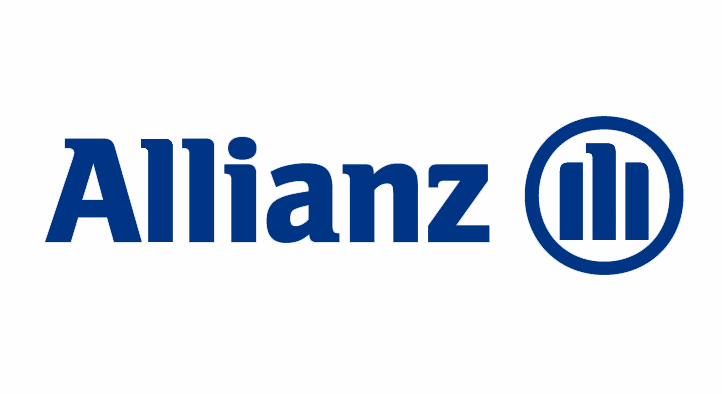


Cyber incidents are considered the top risk for companies globally in 2025, according to the Allianz Risk Barometer.
Business interruption is also a main concern for companies of all sizes, remaining in second place, with natural catastrophes ranking third.
Geopolitical turmoil, impact of government and regulatory change, and fear of trade wars remain high on the business agenda. This means that Changes in legislation and regulation are in the top five risks, taking the fourth place.
The biggest riser in this year’s Allianz Risk Barometer is Climate change, which went from seventh place to fifth, achieving its highest-ever position in 14 years of the survey, the insurer highlighted.
With the rapid development of technology, cyber risks continue to increase, 38% of respondents participating in this years’ Allianz Risk Barometer considering it as their number one risk.
It is the top peril in 20 countries, including Argentina, France, Germany, India, South Africa, the UK and the US.
More than 60% of respondents identified data breaches as the cyber exposure companies fear most, followed by attacks on critical infrastructure and physical assets with 57%.
Rishi Baviskar, Global Head of Cyber Risk Consulting at Allianz Commercial, commented: “For many companies, cyber risk, exacerbated by rapid development of artificial intelligence (AI), is the big risk overriding everything else.
“It is likely to remain a top risk for organizations going forward, given the growing reliance on technology – the CrowdStrike incident in summer 2024 once again underlined how dependent we all are on secure and dependent IT systems.
Research also revealed that, even though large corporates, mid-size, and smaller businesses all perceive cyber incidents as their number one business risk, there are significant differences in the rest of the ranking.
Smaller companies are more worried about immediate issues like regulations, the economy, and finding skilled workers. However, they’re also starting to pay attention to risks that have bothered larger companies, such as climate change and political instability.
Allianz Commercial Chief Underwriting Officer Vanessa Maxwell said: “2024 was an extraordinary year in terms of risk management and the results of our annual Allianz Risk Barometer reflect the uncertainty many companies around the globe are facing right now.
“What stands out this year is the interconnectivity of the top risks. Climate change, emerging technology, regulation and geopolitical risks are increasingly intertwined, resulting in a complex network of cause and effect. Businesses need to adopt a holistic approach to risk management and consistently strive to enhance their resilience in order to address these fast-evolving risks.”
Business interruption (BI) strongly interlinked with other risks, and has remains a top risk for businesses globally, ranking second in the 2025 Allianz Risk Barometer.
Events like natural disasters, cyber-attacks, and geopolitical instability – such as Houthi attacks disrupting shipping in the Red Sea – can severely impact operations and supply chains.
Analysis shows major supply chain disruptions are increasing in frequency, causing significant economic damage. Events like these, which can cause disruptions with global effects, can happen every 1.4 years, according to Allianz, a trend that is rising.
Michael Bruch, Global Head of Risk Advisory Services at Allianz Commercial, stated: “The push for technological advancement and efficiency is affecting the resilience of supply chains. Automation and digitization have significantly accelerated processes, which sometimes overwhelm individuals due to the rapid pace and complexity of modern technology.
“However, when implemented effectively, these technologies can also enhance resilience by providing better data analytics, predictive insights, and more agile response capabilities. This is why building and investing in resilience is becoming critical for every company around the globe.”
Climate change has risen to its highest ever position in the top global risks of 2025, while Natural Catastrophes remain in third place.
2024 is considered to have been the hottest year on record, which saw terrible natural catastrophes, extreme hurricanes and storms in North America, devastating floods in Europe and Asia and drought in Africa and South America.
For the fifth consecutive year, insured losses from these events last year exceeded US$100 billion.
Despite ongoing geopolitical and economic uncertainty in the Middle East, Ukraine and Southeast Asia, Political risks and violence drop one place to the ninth position year-on-year, yet it had the same share of respondents as 2024 (14%).
But it ranks as a more concerning risk for large companies, up to number seven, while it is also a new entry into the top 10 risks for smaller companies taking the tenth place.
Concerns over trade wars and protectionism are rising, fuelled by a fivefold increase in export restrictions on critical raw materials over the past decade. While the US may prioritize tariffs, the potential for unregulated AI and cryptocurrency markets poses another risk. Meanwhile, Europe focuses on stricter sustainability reporting in 2025.
“The effect of new tariffs will be pretty much the same as with (over)regulation: ramping up costs for all companies affected,” says Ludovic Subran, Chief Investment Officer and Chief Economist at Allianz.
Subran added: “However, not every regulation is inherently ‘bad’. And more often than not it is the implementation of rules that make corporate life difficult. Not only the number of rules but also an efficient administration that makes compliance as easy as possible should be the focus.
“A thorough digitization of the administration is urgently needed. However, in 2025, too, we will probably still be waiting in vain for a corresponding digital strategy. Instead, trade wars are coming. The outlook is not rosy.”